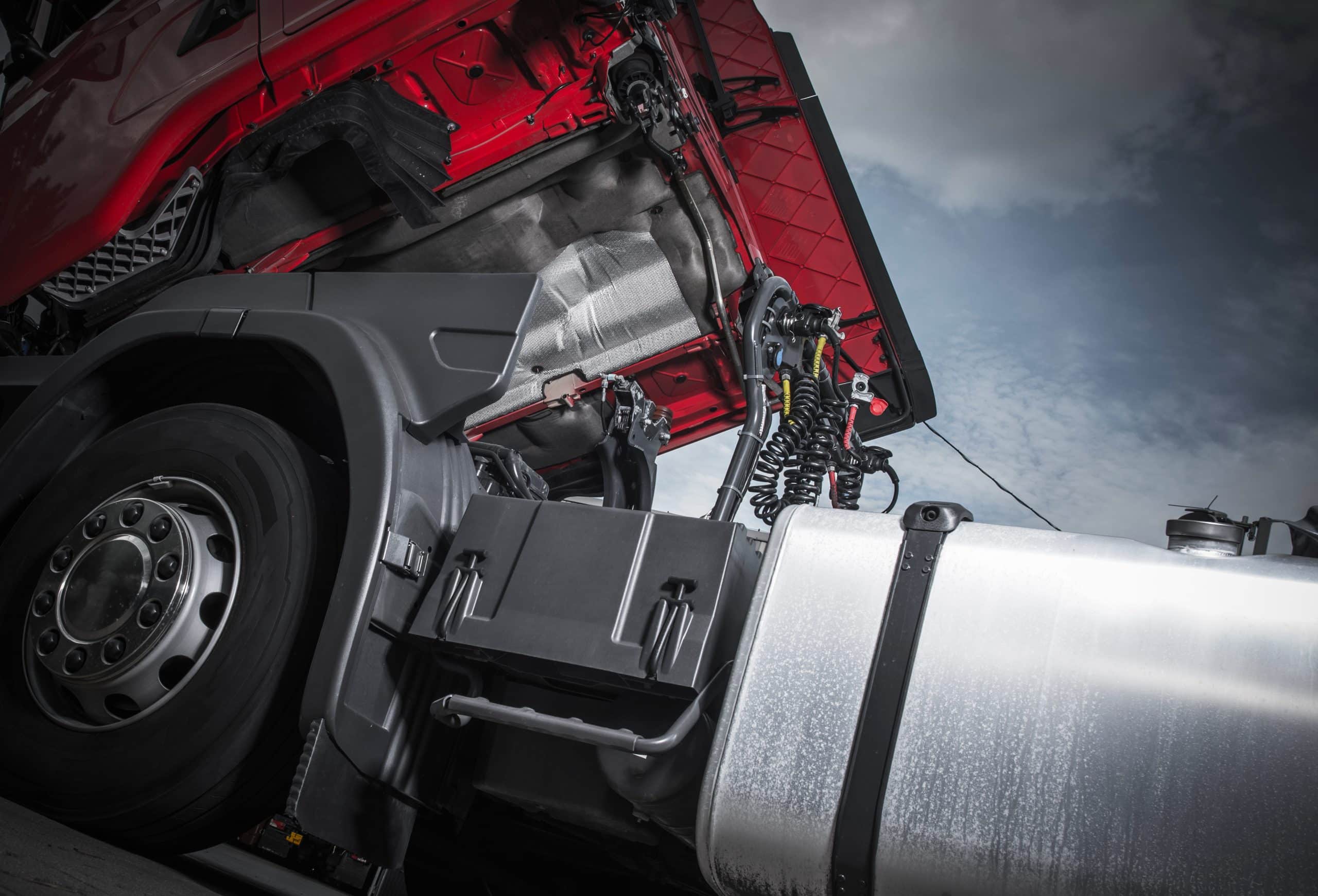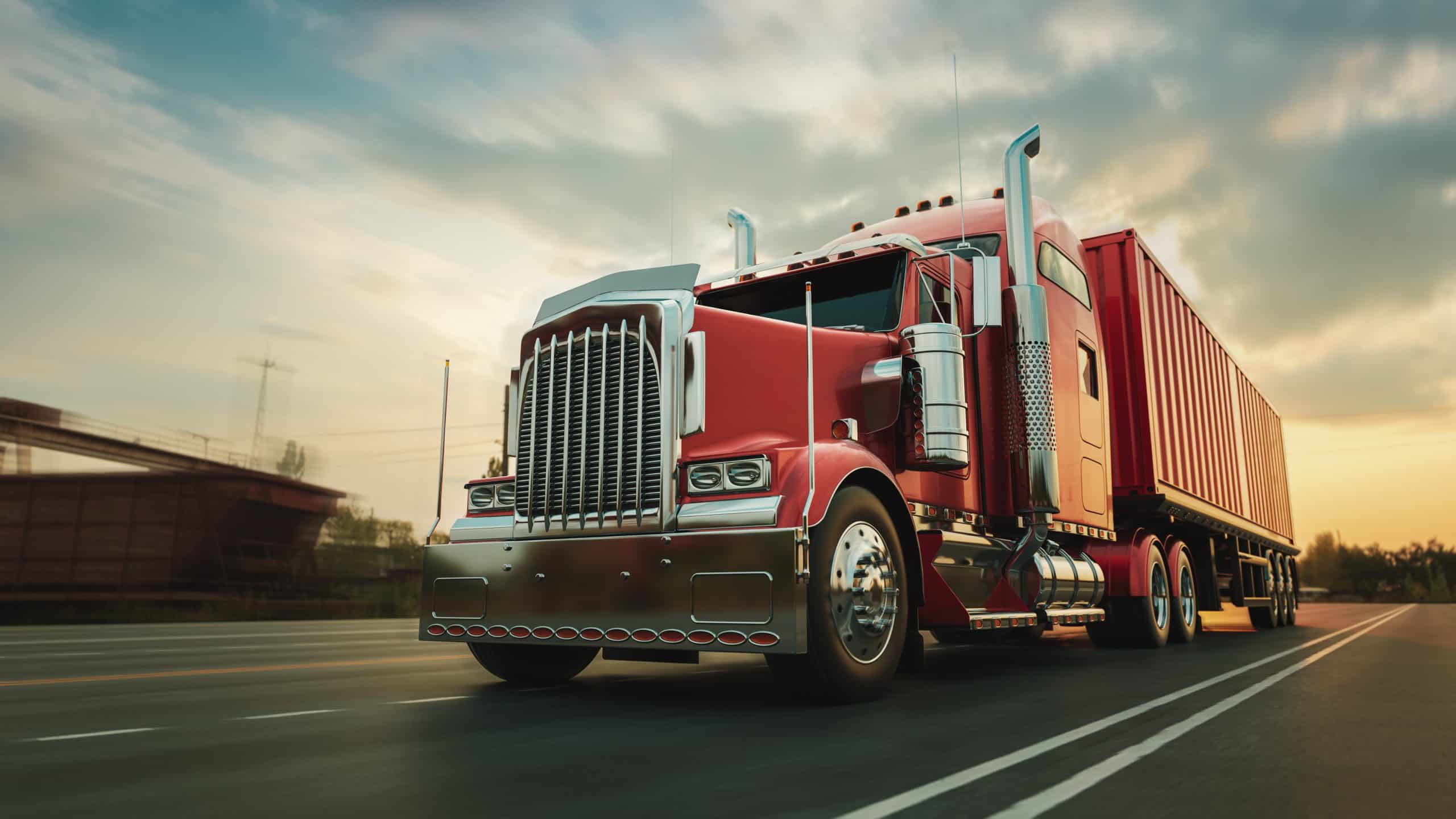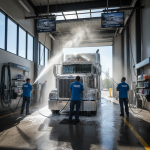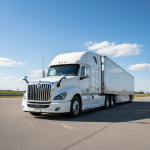As trucks roll in for a gleaming wash at retail truck washes, a corrosive truth lurks beneath the surface. Hydrofluoric acid (HF) poses significant risks to aluminum and chrome surfaces, yet its use remains common within the industry. In this article, we dive into the detrimental effects of HF on aluminum and chrome, shedding light on the potential hazards that truck owners and wash facilities should be keenly aware of.
The allure of a sparkling finish is undeniable, but the long-term repercussions of HF on these metal surfaces cannot be overlooked. By understanding the risks and repercussions, truck owners and wash facilities can make informed decisions that prioritize safety and preservation without compromising on the desired shine. Join us as we explore the corrosive reality of HF and the critical steps to safeguarding aluminum and chrome in the truck wash industry.
Understanding the corrosive effects of HF on aluminum and chrome
Hydrofluoric acid (HF) is known for its highly corrosive nature, posing a significant threat to aluminum and chrome surfaces. When HF comes into contact with aluminum, it forms aluminum fluoride, which not only damages the surface but also seeps into the metal, causing potential structural weakening over time. Similarly, HF reacts with chrome to form chromium fluoride, leading to pitting and corrosion that compromise the integrity of the metal.
The corrosive effects of HF on aluminum and chrome are not just cosmetic issues; they can result in costly repairs and replacements for truck owners and wash facilities. The damage caused by HF can extend beyond the visible surface, impacting the structural integrity of the metal components. Therefore, understanding the specific mechanisms of corrosion caused by HF is crucial for mitigating risks and implementing effective preventive measures.
The potential risks posed by HF in retail truck washes
In retail truck washes, the widespread use of HF-based cleaning products poses significant risks to both the equipment and the environment. The improper handling and disposal of HF can lead to severe consequences, including damage to the wash facility infrastructure, contamination of water sources, and potential harm to employees and customers. Furthermore, the long-term exposure to HF fumes can have adverse health effects on individuals working in close proximity to the chemical.
The potential risks associated with HF in retail truck washes extend to the broader ecosystem, with the discharge of HF-laden wastewater posing environmental hazards. As a result, truck wash operators must be cognizant of the far-reaching implications of HF usage and prioritize safer alternatives that minimize risks without compromising on the quality of the wash.

Regulatory considerations and safety guidelines for handling HF
In recognition of the hazards posed by HF, regulatory bodies have established stringent guidelines for the handling, storage, and disposal of this corrosive chemical in retail truck wash facilities. Compliance with these regulations is critical to ensuring the safety of employees, customers, and the surrounding environment. Additionally, comprehensive training programs on HF safety and emergency response protocols are essential for equipping wash facility staff with the knowledge and skills to mitigate potential risks effectively.
Adhering to safety guidelines for handling HF involves implementing robust containment measures, utilizing personal protective equipment, and establishing emergency response plans in the event of accidental exposure or spills. By prioritizing regulatory compliance and safety protocols, retail truck wash operators can uphold the highest standards of environmental stewardship and workplace safety.
Best practices for mitigating HF-related risks in retail truck wash operations
Implementing best practices for mitigating HF-related risks in retail truck wash operations is paramount to safeguarding both the equipment and personnel. This includes conducting thorough risk assessments to identify potential points of exposure, integrating engineering controls to minimize HF contact with metal surfaces, and establishing strict protocols for the safe handling and storage of HF-based cleaning products. Furthermore, regular monitoring and maintenance of equipment and infrastructure can help detect and address any potential leaks or corrosion issues promptly.
Additionally, investing in alternative cleaning methods and products that are less corrosive and environmentally friendly can significantly reduce the reliance on HF while maintaining the desired level of cleaning efficacy. By adopting a proactive approach to risk mitigation and embracing sustainable alternatives, retail truck wash facilities can uphold their commitment to safety, sustainability, and operational excellence.

Choosing safer alternatives for cleaning aluminum and chrome in truck wash facilities
Given the inherent risks associated with HF, the search for safer alternatives for cleaning aluminum and chrome surfaces in truck wash facilities has gained momentum. Water-based, biodegradable cleaning solutions that are specifically formulated for aluminum and chrome offer a compelling alternative to HF-based products. These alternatives not only provide effective cleaning and protection but also mitigate the environmental and health risks associated with HF.
Furthermore, technological advancements in cleaning formulations have led to the development of innovative products that deliver superior results without the corrosive effects of HF. By embracing safer alternatives, truck wash operators can uphold their commitment to responsible and sustainable practices while delivering exceptional cleaning outcomes.
Case studies and real-world examples of HF-related incidents in retail truck washes
The real-world impact of HF-related incidents in retail truck washes underscores the urgency of addressing the risks associated with this corrosive chemical. Case studies documenting the detrimental effects of HF on aluminum and chrome surfaces, as well as the environmental and financial repercussions of mishandling HF, serve as compelling illustrations of the need for proactive risk management and the adoption of safer cleaning practices.
By examining these case studies and real-world examples, truck wash operators can gain valuable insights into the potential consequences of HF usage and the benefits of transitioning to safer alternatives. These real-life scenarios serve as powerful catalysts for change, driving the industry towards embracing sustainable and responsible cleaning practices.
Training and education on HF safety for truck wash employees
Comprehensive training and education on HF safety for truck wash employees are fundamental pillars of creating a culture of awareness and responsibility within the industry. Equipping employees with the knowledge and skills to handle HF safely, recognize potential hazards, and respond effectively to emergencies not only enhances workplace safety but also instills a sense of confidence and professionalism among the workforce.
Training programs that emphasize the proper use, handling, and disposal of HF, coupled with practical exercises and simulations, empower employees to navigate potential risks with competence and poise. By investing in continuous education and training initiatives, truck wash operators can cultivate a workforce that is well-prepared to uphold the highest standards of safety and environmental stewardship.

Industry outlook and trends in the use of HF in retail truck washes
The evolving landscape of the truck wash industry reflects a growing awareness of the risks associated with HF and a shift towards embracing safer and sustainable cleaning practices. Industry stakeholders are increasingly recognizing the imperative of prioritizing safety, environmental responsibility, and long-term asset preservation. As a result, the demand for alternative cleaning products and technologies that offer effective solutions without the corrosive effects of HF is on the rise.
Moreover, regulatory developments and industry initiatives aimed at reducing the reliance on HF and promoting safer cleaning practices are shaping the future trajectory of retail truck wash operations. The industry’s commitment to innovation and sustainability is driving a paradigm shift towards a safer, greener, and more responsible approach to truck wash cleaning, setting the stage for a transformative evolution in industry practices.
Alternatives and innovations in truck wash cleaning products
The quest for safer and more effective alternatives to HF has spurred a wave of innovations in truck wash cleaning products. Manufacturers are leveraging advanced formulations and sustainable ingredients to develop cutting-edge solutions that deliver superior cleaning performance while mitigating the risks associated with corrosive chemicals. Water-based, non-toxic cleaners tailored for aluminum and chrome surfaces are emerging as viable replacements for HF-based products, offering a compelling blend of efficacy and environmental responsibility.
Furthermore, the integration of advanced application technologies, such as foam and spray systems, enhances the precision and efficiency of cleaning processes while minimizing chemical exposure. These advancements in truck wash cleaning products signify a paradigm shift towards sustainable, safe, and high-performance solutions that align with the industry’s commitment to safety and environmental stewardship.
Conclusion and key takeaways for retail truck wash operators
In conclusion, the pervasive use of hydrofluoric acid (HF) in retail truck washes poses significant risks to aluminum and chrome surfaces, as well as the environment and human health. Understanding the corrosive effects of HF, the potential risks associated with its usage, and the regulatory and safety considerations is essential for truck wash operators to make informed decisions that prioritize safety, sustainability, and operational excellence.
By embracing safer alternatives, investing in employee training and education, and staying abreast of industry trends and innovations, retail truck wash operators can proactively mitigate HF-related risks while delivering exceptional cleaning results. The imperative of transitioning towards sustainable and responsible cleaning practices underscores the industry’s commitment to safeguarding assets, protecting the environment, and ensuring the well-being of all stakeholders.
As the truck wash industry continues to evolve, the adoption of safer cleaning products and practices heralds a new era of conscientious stewardship, setting a precedent for sustainable operations and enduring excellence.




